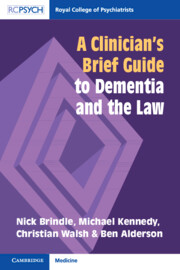This article engages with emerging debates in law and feminist philosophy around the concept of vulnerability. Central to this is the call to re-imagine and re-frame vulnerability as universal – as something which is experienced by all individuals, by virtue of their humanity and context as social beings. The implications of this for laws and policies predicated on groups or categories as ‘being vulnerable’ will be explored in this article, using the concept of mental capacity as an example of how the boundary between capacity and incapacity can be contested through this lens. The article will critically consider the Mental Capacity Act 2005 and associated literature, such as Court of Protection cases, the House of Lords Select Committee's post-legislative scrutiny and Serious Case Reviews, which demonstrate the growing concern about the inadequacy of the binary between capacity and incapacity. This in turn provokes a challenge to accepted wisdom in the context of disability more broadly, inviting us to think in particular about the responses to perceived vulnerability that are currently deemed appropriate. Insights from the legal literature invite further exchanges with social policy theorists as to the concept of vulnerability and its challenges and implications for law and policy.


